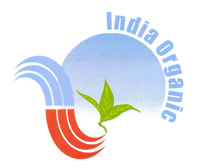Last updated on March 18th, 2025 at 11:05 am
The organic certificate confirms that agriculture practices meet specific standards and are environment-friendly.
A natural product certification in India guarantees that the production process does not include synthetic materials and genetically modified organisms (GMOs).
For both consumers and producers, natural product certificates are necessary. In India, the procedure of becoming organic certified includes several steps. It provides rights to farmers. In order to be organic certified, a production plant should first apply to a certified authority.
It ensures that no unauthorized materials are being used and maintainable farming techniques are followed.
Get Organic Certificate within 24 hours
Organic Certification Consultant in India Call Now: +91 9314321001
Why is Organic Certification Important?
Organic certification is very important in organic farming. This standard ensures that the farm is following organic farming practices.
This standard also helps in building trust between consumers and farmers.
This helps producers/farmers to demonstrate to the consumers that the products produced are truly organic and produced in an environmentally friendly manner.
Who can apply for an Organic Certificate?
- Individual farmers
- Group of farmers
- Corporate Bodies
Types of Organic Certification
1. Organic Farming Individual Certification: Its owned by individual farmers to enhance their farms. Also to enhance the processes of framing.
2. Group Farming Certification: This certification is owned by associations or groups of small-scale farmers.
3. Organic Milk Certification: This certification ensures that dairy and milk products come from organically managed dairies.
4. Input Approval Certification: This certification is used to certify the inputs such as fertilizers, other agricultural products, pesticides, and seeds used in organic farming. This standard assures that inputs comply with organic standards.
5. Trading and Repacking Processing Certification: Repacking and Trading Processing certification is used by businesses for the storage, packaging, labeling, and handling of organic products.
6. Honey Certification: This certification is for honey farming.
7. NPOP Certification: This standard is a kind of third-party certification.4
8. PGS-India Certificate: This certification is based on information sharing, social trust, and social networks for organic farming.
9. Export Certification: This certification is for the products that are exported all over the world.
Advantages of Obtaining Organic Certification
- Higher market value
- Access to a larger market
- Enhanced brand reputation
- Customer trust
- Environmental benefits
- Potential for government support
- Improved animal welfare
Obstacles to Organic Certification
- Cost of certification
- Complexity of standards
- Transition period
- Record keeping and documentation
- Knowledge and expertise
- Market access and competition
- Limited availability of inputs
- Inspection and compliance
- Pesticides and contamination issues
- Geographical and climate challenges
- Lack of government support
What are the requirements of the organic certificate?
- Compliance with organic standards
- Transition to organic practices
- Soil and fertility management
- Use of organic seeds and inputs
- Crop protection and pest management
- Record keeping
- Inspection and evaluation
- Buffer zones
- No use of GMOs
- Livestock and animal welfare
- Processing and handling requirements
- Certification and approval
- Non-compliance and revocation
- Consumer protection and labeling
Organic Certification Process in India
- Understand the requirements of the organic certification
- Select a certification body to apply your organic certificate
- Apply for an organic certificate with the required documents.
- An on-site inspection will be conducted by the certification body to verify the farm, records will also be examined along with the inspection.
- After the inspection, the re-inspection will be conducted to make necessary changes and to make a decision on whether to issue a certificate.
- If inspection is successful, organic certification will be issue.
Organic certificate required documents
- Copy of the application form
- The PAN card of the applicant
- The report of the Annual cropping pattern
- Map of the Field
- General details of the farm
- Analysis report of the Soil and water
- Exit Interviews
- Organic System Plan
- Land document details
- Written annual production plan
- Soil management records
- Pest and disease management record
- Sales and marketing records
Renewal of Organic Certificate
The organic certificate needs to be renewed before the expiry. Organic certificate is valid for 3 years so before the end of 3 years you need to renew your organic certificate otherwise it will be cancelled by the certification body.
Cost
The organic certificate cost depends on:-
- The size of the operation
- Type of crops you are producing
- Certification body
- Geographical location
- Complexity of farming practices
Validity
3 years
Processing time
Within 24 hours from A Star Legal Associates, you will get an Organic certificate.
Organic Certification Consultants in India
To obtain organic certification, you can choose A Star Legal Associates. Our Company has the authority to provide you with organic certificates, other business certificates, and ISO certification. You can visit us online or offline for more details.
Organic Certification Consultant in India Call Now: +91 9314321001
Conclusion
In India, ensuring that goods are produced without pesticide use requires organic certification. After such difficulties, keeping one’s certification is important for those dedicated to organic procedures. Advantages include market access, environmental impact, and people’s trust.
FAQ
Who issues the Organic certificate?
A Star Legal Associates issues an Organic Certificate.
Full form of GMOs
GMOs stand for Genetically Modified Organisms.
Who inspects the Organic certification?
The certification body inspects the Organic certificate.
How to verify Organic Certification
To verify the Organic Certificate, contact the A Star Legal Associates team, we will tell you the verification process.
Who cannot be certified organic?
Genetically modified organisms or genetic engineering cannot be certified as organic.
Which agency is best for providing the organic certificate in India
A Star Legal Associates provides an organic certificate in India.
India Organic Certification mark

Organic farming certification in India
Organic certification is governed and established by NPOP. If you also want organic farming certificate in India then contact A Star Legal Associates.
NPOP full form
NPOP stands for National Programme for Organic Production.
